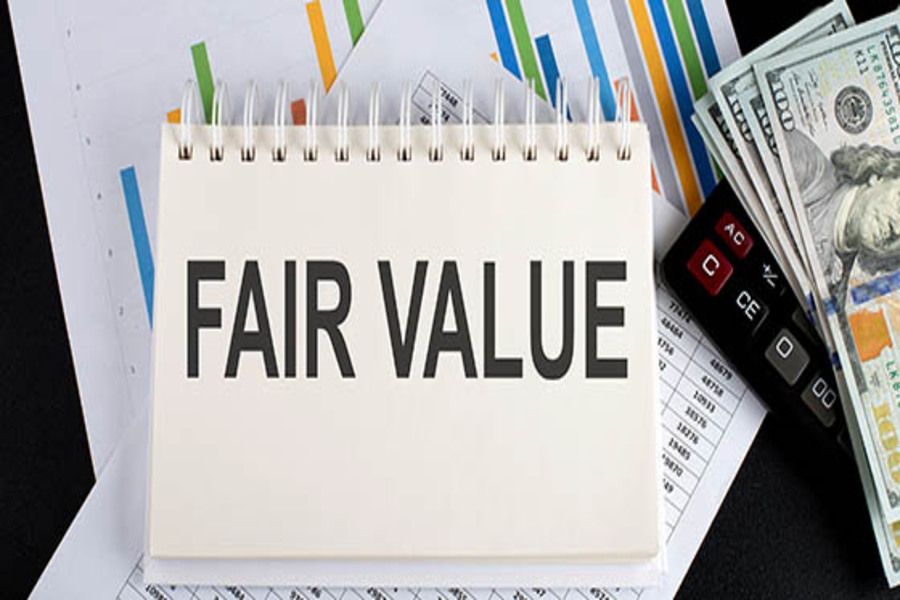It’s been years since the Tax Cuts and Jobs Act (TCJA) of 2017 was signed into law, but it’s still having an impact. Several provisions in the law have expired or will expire in the next few years. One provision that took effect last year was the end of current deductibility for research and experimental (R&E) expenses. R&E expenses The TCJA has affected many businesses, including manufacturers, that have significant R&E costs. Starting in 2022, Internal Revenue Code Section 174 R&E expenditures must be capitalized and amortized over five years (15 years for research conducted outside the United States). Previously, businesses had the option of deducting these costs immediately as current expenses. The TCJA also expanded the types of activities that are considered R&E for purposes of IRC...

Have you bought stock in a company that later dropped in value? While you may prefer to forget such an ill-fated investment, at least you can claim a capital loss deduction on your tax return. Here are the rules that apply when a stock you own is sold at a loss or becomes completely worthless. Stock sales produce capital losses Stocks are capital assets and produce capital gains or losses when they’re sold. Your capital gains and losses for the year must be netted against one another in a specific order, based on whether they’re short-term (held one year or less) or long-term (held for more than one year). If, after netting, you have short-term or long-term losses (or both), you can use them to offset up to...
Fair market value is the appropriate standard of value in most business valuation assignments. But when valuing an asset for financial reporting purposes, fair value is generally used. Here’s an overview of what fair value is and how it differs from fair market value. Eyes on GAAP The terms “fair value” and “fair market value” are sometimes used interchangeably. To a business valuation professional, however, they have very different meanings. Under U.S. Generally Accepted Accounting Principles (GAAP), fair value is “the price that would be received to sell an asset or paid to transfer a liability in an orderly transaction between market participants at the measurement date.” This definition is found in Accounting Standards Codification (ASC) Topic 820, Fair Value Measurement. For example, fair value may be used when: ...
Summer is around the corner so you may be thinking about hiring young people at your small business. At the same time, you may have children looking to earn extra spending money. You can save family income and payroll taxes by putting your child on the payroll. It’s a win-win! Here are four tax advantages. 1. Shifting business earnings You can turn some of your high-taxed income into tax-free or low-taxed income by shifting some business earnings to a child as wages for services performed. In order for your business to deduct the wages as a business expense, the work done by the child must be legitimate and the child’s salary must be reasonable. For example, suppose you’re a sole proprietor in the 37% tax bracket. You hire your...
Under tax law, businesses can generally deduct advertising and marketing expenses that help keep existing customers and bring in new ones. This valuable tax deduction can help businesses cut their taxes. However, in order to be deductible, advertising and marketing expenses must be “ordinary and necessary.” As one taxpayer recently learned in U.S. Tax Court, not all expenses are eligible. An ordinary expense is one that’s common and accepted in the industry. And a necessary expense is one that’s helpful and appropriate for the business. According to the IRS, here are some advertising expenses that are usually deductible: Reasonable advertising expenses that are directly related to the business activities. An expense for the cost of institutional or goodwill advertising to keep the business name before the public...
As appearing in IRS Newswire IR-2023-64 The Internal Revenue Service just issued a proposed regulation related to certain requirements that must be met for critical minerals and battery components for the new clean vehicle credit. The Inflation Reduction Act (IRA) allows a maximum credit of $7,500 per vehicle, consisting of $3,750 in the case of a vehicle that meets certain requirements relating to critical minerals and $3,750 in the case of a vehicle that meets certain requirements relating to battery components. The critical mineral and battery component requirements will apply to vehicles placed in service on or after April 18, 2023, the day after the Notice of Proposed Rulemaking is issued in the Federal Register. New clean vehicles placed in service on or after April 18, 2023, are subject...
You generally must pay federal tax on all income you receive but there are some exceptions when you can exclude it. For example, compensatory awards and judgments for “personal physical injuries or physical sickness” are free from federal income tax under the tax code. This includes amounts received in a lawsuit or a settlement and in a lump sum or in installments. But as taxpayers in two U.S. Tax Court cases learned, not all awards are tax-free. For example, punitive damages and awards for unlawful discrimination or harassment are taxable. And the tax code states that “emotional distress shall not be treated as a physical injury or physical sickness.” Here are the facts of the two cases. Case #1: Payment was for personal injuries, not physical injuries A taxpayer...
If customers report fraud or suspicious charges on their accounts, what might seem like a challenge can actually be an opportunity for your business. Handle these disputes efficiently and you can regain — and even strengthen — customer loyalty. The alternative: angry customers, damage to your reputation and financial losses. Your customer dispute resolution processes should move quickly to get to the bottom of possible fraudulent activity. For results that satisfy your customer and benefit your business, follow these eight best practices: Publicize your processes. Post clear and easily accessible information on your website, social media accounts and other communication channels detailing how customers can report suspected fraud on their accounts. These notices should include contact details, any relevant forms or documentation required and steps in the...
If you’re buying or replacing a vehicle that you’ll use in your business, be aware that a heavy SUV may provide a more generous tax break this year than you’d get from a smaller vehicle. The reason has to do with how smaller business cars are depreciated for tax purposes. Depreciation rules Business cars are subject to more restrictive tax depreciation rules than those that apply to other depreciable assets. Under the so-called “luxury auto” rules, depreciation deductions are artificially “capped.” Those caps also extend to the alternative deduction that a taxpayer can claim if it elects to use Section 179 expensing for all or part of the cost of a business car. (It allows you to write-off an asset in the year it’s placed in service.) These...
Revenue Ruling 59-60 is a landmark piece of IRS guidance that outlines the factors to consider when estimating the fair market value of a private business. Here’s an overview of those factors, along with other hidden details found in the ruling’s fine print. 8-factor approach Revenue Ruling 59-60 says that business valuation is an inexact science, often resulting in “wide differences of opinion” about the value of a particular business interest. Therefore, valuation professionals use a customized approach that considers the following eight factors: 1. The nature and history of the subject company, 2. The outlook for the general economy and industry, 3. Book value and financial condition (from at least two years of balance sheets), 4. Earnings capacity (from at least five years of income statements), 5. Dividend-paying capacity (as opposed...
- 1
- 2
- 3
- 4
- 5
- 6
- 7
- 8
- 9
- 10
- 11
- 12
- 13
- 14
- 15
- 16
- 17
- 18
- 19
- 20
- 21
- 22
- 23
- 24
- 25
- 26
- 27
- 28
- 29
- 30
- 31
- 32
- 33
- 34
- 35
- 36
- 37
- 38
- 39
- 40
- 41
- 42
- 43
- 44
- 45
- 46
- 47
- 48
- 49
- 50
- 51
- 52
- 53
- 54
- 55
- 56
- 57
- 58
- 59
- 60
- 61
- 62
- 63
- 64
- 65
- 66
- 67
- 68
- 69
- 70
- 71
- 72
- 73
- 74
- 75
- 76
- 77
- 78
- 79
- 80
- 81
- 82
- 83
- 84
- 85
- 86
- 87
- 88
- 89
- 90
- 91
- 92
- 93
- 94
- 95
- 96
- 97
- 98
- 99
- 100
- 101
- 102
- 103
- 104
- 105
- 106
- 107
- 108
- 109
- 110
- 111
- 112
- 113
- 114
- 115
- 116
- 117
- 118
- 119
- 120
- 121
- 122
- 123
- 124
- 125
- 126
- 127
- 128
- 129
- 130
- 131
- 132
- 133
- 134
- 135
- 136
- 137
- 138
- 139
- 140
- 141
- 142
- 143
- 144
- 145
- 146
- 147
- 148
- 149
- 150











